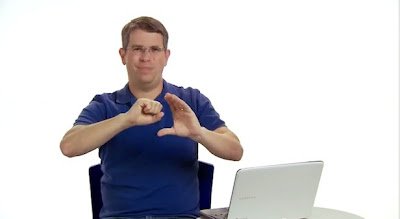Considering the shifts in
Search Engine Optimization survival, 2012 has been quite an eventful year. There have been several important updates that have changed the search scene altogether.
A massive crackdown on spam sites through the EMD updates was not the only scathing step taken by Google. Google updates its algorithm over 500 times a year in order to weed out low quality sites from the top positions. Google will never stop its relentless run to make search results more relevant.
Search engine optimization, as it stands today, is no longer child’s play. It has become quite challenging and innovative strategies are required to attain better rankings.
So what is the outlook for SEO in 2013? The answer to this question is still vague, as people are not sure about the updates that are to occur in 2013. Fierce arguments are still raging regarding the Google updates that may take place. While some believe that the future lies in content marketing, others believe that social media presence will be the key. Others continue to resort to blackhat
SEO methods that may land them on Google’s hitlist.
Based on what I hear people saying and see people doing, and my understanding of the proposed Google updates that may take place, here is a list of major changes in SEO you can expect to occur in 2013.
Digital Marketing:Digital marketing will also play a big role in 2013. Digital marketing will slowly include the entire spectrum of online marketing from market-purposed content creation, through pay-per-click strategies, to use of social media. Because of certain expected Google updates, this will get a big boost and chances are that more and more brands will come into the digital marketing field in time.
Author Rank:
How Google handles Author Rank will be the biggest search factor in 2013. It may turn the entire internet marketing world upside down.
Google will assign each blogger an Author Rank based on various parameters such as niche authority and domain expertise. This Rank will be given a major role in ranking the content authored by that author. Simply speaking, the higher the rank and reputation of the author, the higher are the chances of their content ranking well in search engines. Also, an author’s published content will be directly linked to their Google+ profile, thereby drawing Google+ into SEO calculations. So, with the mooted Author Rank update, performance of a site will depend more upon the reputation and niche expertise of the content’s author in social networks.
Social Media Presence:SEO in 2013 will be heavily influenced by the numerous social networks and the development and utilisation of an effective social media presence. Site owners and technicians have to carve a niche out for themselves in social media if they want their sites to do well in search rankings. Sharing of content on social networks like Facebook, Twitter, StumbleUpon, Pinterest, Delicious, LinkedIn, MySpace and Google+ will be of the utmost importance. Social media popularity will, in a way, decide the fate of a site as far as Google is concerned.
The reason Google gives such importance to the social media presence of a site is yet to be definitively ascertained. But there are many theories out there regarding this. Social media presence is proof that the traffic finds the content of a site useful. However, many say that Google will do this to give its staggering Google+ a boost. Many believe that in the days to come, Google+ might just emerge as the most important social network for webmasters.
Equivalency Score Algorithm:
Another major update that is expected to take place in 2013 is the Google Equivalency Score Algorithm (ESA). ESA is expected to work in the same way as Google Adword’s Quality Score where each keyword is given a point score based on several factors. The quality score of the keywords is then used along with the bid amount of the advertiser and the ads are ranked accordingly. ESA, if operationalized, will have a huge impact on online businesses. It will effectively cut down the monopoly of some websites on number one rankings and will create a more level playing field for all businesses. One effect of this is that Google may display the same results for a search query in different orders each time the results appear on screen.
Link Disavow Tool:
The Link Disavow Tool was created to collect data on the backlink structure of sites. Chances are that Google will use this tool in 2013 to create an algorithm using the links that have already been submitted to them. The tool will be used to improve reporting of spam sites and poor quality backlinks. Consequently, blog posts and forum posts can no longer be used to create backlinks.
No Fundamental Changes in SEO:
Having started by explaining how SEO will fundamentally change in 2013, let me close by saying that the foundation of
SEO is going to remain the same. Whether web owners and professionals like it or not, content will continue as the king online. High quality, well-written, expertly displayed, functionally useful content will still hold the key to ranking well for target search terms. Any site needs to have compelling and unique content that has good readability and provides a rich user experience. Half the search battle is won if a website follows this cardinal rule, and that will only become more true in 2013 and beyond.
Currently accepted link building practices such as viral article submission and automated link posting won’t work any more, as the basis for them affecting search results is revealed as artifical. Google began the tough scrutiny of backlinks in 2012, and this will continue in 2013.
While we must wait to see just how Google and other search giants implement their strategies for 2013, it can be taken for granted that their efforts to keep search results organically honest, relevant and useful to consumer will have an impact on the industry that has developed around search engine optimization. Whether the effects of that are good or bad, for consumers and the industry, remains to be seen.
What about you? Are you ready for 2013? Do you foresee other ways in which search will change next year and beyond?



.jpg)






















































